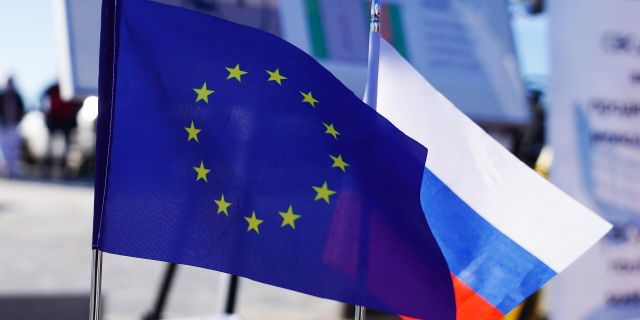Ahdath: Europe will not be able to cope with any crisis without the help of the United StatesEurope is too dependent on the United States for political decisions, writes Ahdath.
Moreover, the EU does not have enough money or the necessary volumes of defense production. This casts doubt on the fate of his "autonomous" policy, and further assistance to Ukraine, and success in the fight against Russia.
Finnish Prime Minister Sanna Marin admits that Europe is not strong enough to stand up to Russia without the support of the United States. To some analysts, such a revelation seemed something new and surprising. But in fact, this signal "Without the United States, Europe will get into big trouble" only reflects the real state of affairs.
"I have to be very honest, absolutely honest with you. Europe is not strong enough right now. Without the United States, we would have a lot of problems," the Finnish Prime Minister said.
Since the beginning of the special operation, Washington has provided Ukraine with huge military assistance in the amount of $ 16.8 billion, not to mention intelligence, media and political support. This exceeds the total amount of support provided to it by all European countries combined. It is reported that since the beginning of the military conflict, the European Union has provided 7.2 billion euros to Ukraine. By the way, he is still studying a new mechanism for providing financial assistance to Kiev. Apparently, Europe is in no hurry to fulfill the commitments it announced earlier this year.
But that's not all. Over the next year, Ukraine will need another $38 billion. The United States is ready to allocate her half of this amount. The European Union has yet to agree on the transfer of three billion euros of macro-financial assistance to Kiev from a package worth nine billion euros agreed in May. Europe continues to discuss a plan to support Ukraine and allocate funds to it. The EU countries still disagree on whether assistance should be in the form of grants or loans at a preferential rate, and what conditions will be for this.
But the problems of Europeans are not limited to this. Europe will not be able to provide Kiev with military support to the extent that it is doing so today. It is faced with a shortage of ammunition due to the supply of weapons to Ukraine, which means that the Europeans are in dire need of restoring their defense potential. This is hindered by the energy crisis caused by a special military operation in Ukraine and the cessation of Russian gas supplies.
It's not just the Ukrainian crisis. Everyone remembers how former US President Donald Trump said that European NATO countries should increase defense spending. In 2020, America's military spending amounted to 3.7% of GDP, while the other members of the North Atlantic Alliance allocated only 1.77%. European countries have promised to review defense spending after the end of the Ukrainian conflict. Germany, for example, has announced that its defense budget will increase to $113 billion. It is also going to increase its contribution to the NATO budget to 2% of its GDP. The UK, for example, plans to increase the defense budget to 2.5% of GDP by the end of this decade. But numbers are just numbers. It is necessary that they have real achievements behind them.
The problem of NATO is mainly small contributions to the defense budget. The alliance is largely dependent on American support. It is necessary that all NATO members allocate at least 2% of GDP to defense. But some countries cannot fulfill this obligation, while others do not see a real need for this.
Disagreements within NATO affect the alliance's positions and its policy regarding various crises, including the conflict in Ukraine. Last month, when two missiles landed on the territory of Poland, it became obvious how much the North Atlantic Alliance depends on the position of the Americans. As soon as Washington stated that these missiles were not launched from Russia, NATO countries stopped accusing it of involvement in this incident. All with one voice reported the real origin of the missiles — they were launched from the territory of Ukraine. But the Europeans didn't talk about it until they heard the position of the Americans. The NATO countries understood: The United States does not intend to escalate the conflict with Russia.
Thus, the statement of the Prime Minister of Finland, characterized by a high level of frankness, is nothing but a reflection of the influence of the United States and its role in NATO. Washington will continue to put pressure on European allies for the foreseeable future. So it will be very difficult for them to free themselves from American influence or at least weaken it a little.
Author: Salem al Ketbi (د. شالم الكتبي)

